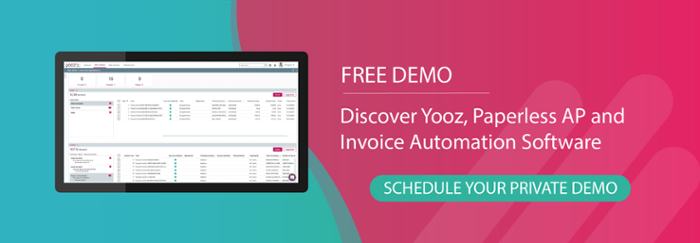Non-profit organizations play a vital role in addressing society needs and promoting social good. However, unlike for-profit businesses, non-profits are driven by a mission rather than financial gain. They need to have an efficient way to manage their operations, multiple programs, and finances. That's where Enterprise Resource Planning (ERP) software comes into play.
ERP systems provide a centralized platform to help businesses integrate and manage various aspects of their operations, helping them to automate their financial systems, streamline their business processes, and improve their overall efficiency.
But why are automated financial systems so important when it comes to nonprofit Accounts Payable? What makes a non-profit ERP system different?
What is an ERP?
ERP software is a suite of integrated applications designed to automate systems, eliminating the need for manual data entry, therefore reducing errors, lowering costs, and saving time. As stated above, it services as a centralized system, one that connects different departments and functions such as finance, human resources, supply chain, manufacturing, sales management, and customer relationship management.
By consolidating and centralizing processes, ERPs streamline and manage diverse aspects of a business's operations. It enables efficient data sharing and communication across departments - single or multi-location - and provides real-time visibility into business processes.
What is ERP Software for Non-Profits?
Industry-specific ERP software solutions are tailored to meet the unique needs and requirements of specific industries. Non-profit ERP software helps organizations handle a variety of financial transactions such as donations, grants, and expenses, helping them to increase efficiency, transparency, and accountability while optimizing their resources.
Non-profit ERP software also provides real-time access to a variety of data, enabling non-profit organizations to make informed decisions and respond quickly to changing circumstances.
Considering that non-profits often operate on a tight budget, ERP software can greatly help them to maximize their resources and effectively accomplish their mission.

Benefits of Non-Profit Specific ERP Software
When it comes to financial management and accounting, ERP software offers several benefits for non-profit organizations including:
- Efficient Financial Management
Non-profit organizations often have unique financial requirements, such as managing donations, grants, and expenses. These transactions can be complex and time-consuming, especially if they're managed manually. Fortunately, ERP software can help automate financial systems and improve the accuracy and efficiency of financial reporting.
- Streamlined Financial Processes
ERP software streamlines financial tasks such as invoicing, payment processing, and expense management. By automating these processes, non-profits can reduce errors, save time, and allocate resources more effectively.
With a centralized system for managing financial transactions and using standardized reporting tools, non-profits can ensure accurate and up-to-date reporting, facilitating their compliance with any regulatory requirements.
- Effective Budget Management
Non-profit ERP software helps non-profit organizations manage their budgets more effectively. By providing real-time data on revenue, expenses, and cash flow, non-profits can make informed decisions about spending and identify areas where they can reduce costs. Organizations can also track their spending in real time, ensuring that they adhere to budgets and prevent overspending.
- Enhanced Reporting and Analytics
Non-profit ERP software generates comprehensive financial reports and analytics, leveraging real-time data. This empowers organizations to monitor financial performance, identify areas for improvement, and make data-driven decisions. Organizations are also able to quickly compile and analyze financial trends and patterns which improves their financial planning and forecasting accuracy.
- Improved Donor Management
ERP software provides a centralized data repository for donor information, allowing non-profits to better manage donor relationships. It helps to track donations, manage communications, and analyze donor behavior. This can help non-profits identify trends in donor giving and tailor their fundraising efforts to meet the needs of their donors.
- Compliance Support
ERP software can help non-profit organizations comply with regulatory requirements and maintain good governance practices. By providing a centralized system for managing financial transactions, non-profits can ensure that they have accurate and up-to-date financial records, making it easier to comply with regulatory requirements. The software also helps non-profits implement internal controls and audit trails, improving their ability to prevent and detect fraud.
- Facilitates Better Decision-Making
ERP software provides real-time access to financial and operational data, enabling non-profits to make informed decisions and respond quickly to changing circumstances. The software also helps organizations to identify trends, analyze data, and monitor performance, all of which improves strategic decision-making.

Key Features of ERP Software for Non-Profits
When selecting the best ERP software for their organization, non-profits should consider key features that can help them achieve their financial goals and enhance operational efficiency Here are some essential features of ERP software for non-profits.
- Financial Management
ERP software provides a centralized system for managing financial transactions, making it easier for non-profits to manage budgets, expenses, and revenue. The software can automate accounting tasks such as invoicing and payment processing, minimizing the need for manual data entry and reducing the risk of errors. With real-time data on financial performance, non-profits can make informed decisions about spending and identify areas where they can reduce costs.
- Inventory Management
For non-profits that require inventory management, ERP software becomes an invaluable tool for tracking stock movements, forecasting demand, and optimizing inventory levels. The software can provide real-time data on inventory levels, making it easier to identify slow-moving or excess inventory and allowing non-profits to take prompt action to reduce costs. With features such as automated reordering and real-time inventory tracking, non-profits can improve their supply chain and asset management abilities.
- Project Management
ERP software aids non-profits in effectively managing projects, from planning and budgeting to execution and monitoring. The software provides a centralized system for tracking project progress, allocating resources, and managing timelines. With real-time data on project performance, non-profits can identify potential issues and take corrective action to keep projects on track.
- Customer Relationship Management
For non-profits that rely on donations and volunteer support, ERP software can be instrumental in managing relationships with donors, volunteers, and other stakeholders. The software offers a centralized system for managing donor data, tracking donations, and analyzing donor behavior. Through features such as automated donor communications and personalized fundraising campaigns, non-profits can improve donor engagement and maximize their fundraising effectiveness.
Overall, ERP software can be a powerful tool for non-profits looking to improve their financial management, streamline operations, and achieve their mission more effectively. By selecting the right ERP software and leveraging its key features, non-profits can position themselves for long-term success and sustainable growth.

Choosing the Right ERP Software for Your Non-Profit
Selecting the ideal ERP software for a non-profit organization requires careful consideration of multiple factors. One crucial aspect involves identifying the organization's specific needs and ensuring that the software is capable of fulfilling those requirements. In addition, non-profits should assess their budget and available resources to ensure a seamless and effective implementation of the software.
Partnering with a vendor experienced in serving non-profits and the non-profit industry is crucial to ensure that the software can be customized to meet the organization's unique needs. Ongoing support is also vital to ensure the software remains efficient and facilitates timely updates.
It's also important to consider the scalability of the software to accommodate future growth, such as increased donations or program expansion. Furthermore, evaluating the software's security features must be evaluated to ensure that sensitive financial and donor information is safeguarded from potential data breaches or cyber-attacks.
Conclusion
Non-profit organizations can greatly benefit from implementing non-profit ERP software to automate their financial systems, streamline business processes, and increase overall efficiency. In addition, when selecting an ERP solution for your non-profit, it's crucial to partner with a software vendor experienced in serving non-profits and providing ongoing support.
Yooz offers a comprehensive ERP solution for non-profits, encompassing automated financial systems, project management, and customer relationship management. With Yooz, non-profits can enhance their financial reporting, optimize business process management, and make well-informed decisions based on real-time data. To discover more about how Yooz can empower your organization, please, visit our website today or request a personalized demo.







